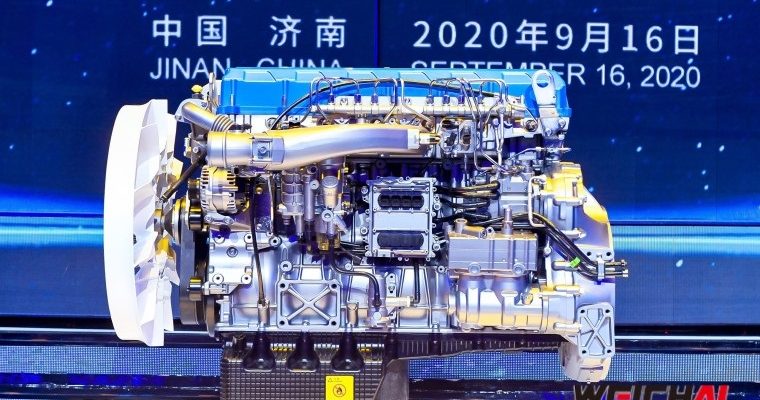Bosch is claiming a 50% thermal efficiency on its diesel engine technology in trials in China.
The automotive supplier giant teamed up with Chinese engine manufacturer, Weichai Power, is claiming a new global efficiency benchmark for engines developed for heavy duty trucks. Currently, thermal efficiency for truck engines averages around 46 percent.
While the four-point improvement may not seem to be that great a leap forward, when extrapolated to the global consumption of diesel throughout the logistics supply chain, the development can have a substantial impact on the battle against climate change. At the heart of the breakthrough is Bosch’s modular common-rail system for the six-cylinder diesel engine with 12.9-liters displacement. The system can be used for pressure levels from 1,800 to 2,500 bar and configured for engine sizes up to eight cylinders. High injector flow rates improve combustion and, depending on the demands, the system can last for up to one million miles. The common-rail system is also designed to work with an electrified powertrain.
The supplier’s commitment to ICE technology is part of its strategy to combat global warming. It suggests that if they are run on carbon neutral liquid fuels, gasoline and diesel engines can also be climate-neutral on the road. Bosch expects around one-third of all newly registered vehicles worldwide to be purely electric by 2030 while the majority will still be powered by a combustion engine, many of them as hybrids.
Dr Volkmar Denner, chairman of the board of management of Robert Bosch, said: “In increasing the efficiency by four percentage points, we have jointly reached a new milestone. Even though the diesel engine is nearly 130 years old, its development continues.”
— Paul Myles is a seasoned automotive journalist based in London. Follow him on Twitter @Paulmyles_
Source: https://www.tu-auto.com
CUT COTS OF THE FLEET WITH OUR AUDIT PROGRAM
The audit is a key tool to know the overall status and provide the analysis, the assessment, the advice, the suggestions and the actions to take in order to cut costs and increase the efficiency and efficacy of the fleet. We propose the following fleet management audit.




